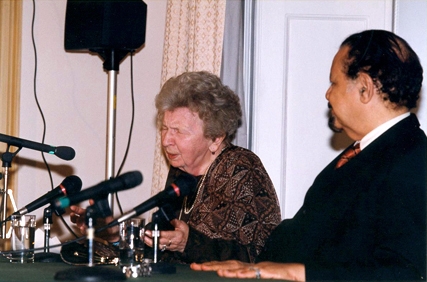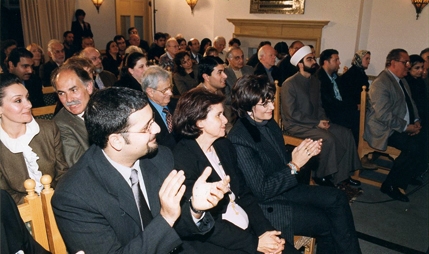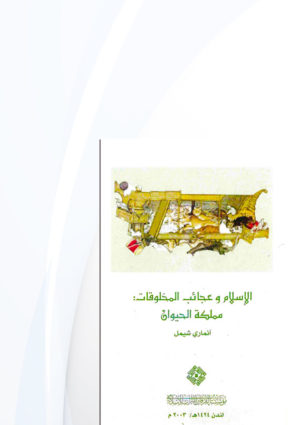Professor Annemarie Schimmel presented her lecture on “The Wonders of Creation: Animals in the Islamic Tradition” to a packed house at Al-Furqan Islamic Heritage Foundation's headquarters, Eagle House in Wimbledon, London, on Wednesday 28th February 2001.
She started her interesting and thought- provoking lecture quoting verses of the Holy Qur’an on animals. Many verses mentioned animals by name, in addition to long chapters named after animals such as al-Baqara (the Cow), al-Naml (the Ants) and al-Ankabut (the Spider). The traditions of the Prophet on treating creatures with kindness and mercy were also emphasised.

As could only have been expected, Professor Schimmel had undertaken exhaustive research of most of the books related to her subject: “Kalilah wa Dimnah”, names given to animals by al-Ma’ari amongst others and books on animal medicine and animal husbandry by al-Damari and al-Jahiz. The professor underlined the interest shown by Arab, Turkish and Persian writers to animals and the great interest shown in them in paintings and miniatures, such as in “Maqamat Al-Hariri” and the drawings made especially for the Mongol sultan Jahanshir (1627) as well as other works by Muslim artists.
Professor Schimmel drew the attention of her audience to the numerous fables about animals and the intimate relationship between them and many mystics, such as: Rabiah al-’Adawiyyah, Jalaluddin al-Rumi; poets, such as: Hafizuddin al-Shirazi, Yunus Emre and others who wrote in detail about the virtue of those wonderful creatures. Many of these stories found their way into European culture through the work of orientalists.

In conclusion, she said that these creatures taught us many things about human behaviour, such as being merciful and compassionate.
Finally, she suggested that some of these animals might share with human beings the promised paradise, the final resting place for human believers.


